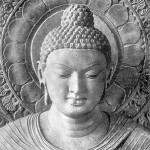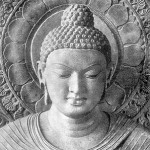WHAT IS BUDDHISM?
Buddhism is a path of practice and spiritual development leading to Insight into the true nature of reality.
Around 650 BCE, the Buddha became aware through his own practice that there is suffering in life. He then discovered a path to its release or freedom from suffering (nibbana), through concentration, insight and compassion. At the root of this suffering is craving. We cling to what we believe is pleasurable, avoid what we believe is not pleasurable and ignore what is neither pleasurable nor unpleasant.
The Buddha went on to outline a path of practice and spiritual development leading to a deepening understanding of the true nature of our minds, our bodies and our moment-to-moment experience, all of which is every changing and mostly not within our control. Buddhist practices, such as ethical living, service and meditation, are a means of developing awareness, kindness, and wisdom, qualities that lead to a happier, more peaceful mind. With such a mind, we find ourselves more naturally inclined to offering compassion to ourselves and others. When we see more clearly the ways in which our actions lead to suffering or to happiness, we can then live in greater harmony with the world around us.
The Dalai Lama often says that one does not have to ‘convert’ to Buddhism to practice it. Because Buddhism does not include the idea of worshipping a creator god, some people do not see it as a religion in the typical Western sense. The basic tenets of Buddhist teaching are straightforward and practical: nothing is fixed or permanent; actions have consequences; change is possible. So Buddhism addresses itself to all people irrespective of race, nationality, caste, sexuality, gender, or religious practice. The practical methods taught by the Buddha enable people to transform their experience and be fully responsible for their lives.




